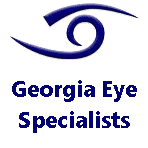
It’s now officially Spring and we know what that means… the weather gets warmer, flowers start to blossom, and then comes the dreaded pollen! For many folks, pollen also means allergy season.
But this year may be worse than years past!
“We believe that spring allergy seasons are beginning earlier, lasting longer, so more time for pesky pollen to find their ways into your eyes, nose and throats,” Dr. Clifford Bassett, the founder and director of Allergy and Asthma Care of New York, told Newsweek.
Allergies can affect people in different ways, but for us Ophthalmologists we start seeing signs of eye allergies or Allergic Conjunctivitis.
Allergic conjunctivitis occurs when the body’s immune system reacts to an allergen. In this case it’s the pollen in the air. This causes an allergic reaction leading to the signs and symptoms of allergies.
What are signs and symptoms of Allergic Conjunctivitis?
Symptoms of allergic conjunctivitis include red, itchy, watery, and gritty eyes. You can have associated discharge, swelling, puffiness, and even light sensitivity.

How is it diagnosed?
Your history is important. Especially, if you have a history of nasal or sinus allergies and asthma. This can let us know if you may be having eye involvement of your allergies.
We also do a thorough eye exam checking for signs of an allergic reaction in the eyes. This is important to make sure there isn’t another reason for your symptoms. You may have other conditions such as dry eye, blepharitis, or drops that are also irritating the eyes.
How do we treat Allergic Conjunctivitis?

First, we would want you to have a thorough eye exam to make sure we are
treating the correct diagnosis. Once you’ve had an eye exam and we have diagnosed allergies, then we can start the treatment. Simple remedies to start with include using cool compresses to relieve the irritation. It also helps to avoid rubbing the eyes which can make symptoms worse. Artificial tear drops are also a good way to get quick relief of irritation.
We also start treatment with simple over the counter allergy eye drops. It’s important to note that we do not recommend using drops that “get the red out” as these can worsen the eyes over time. If we feel like that stronger treatment is required, then we may write for prescription eye drops. In severe cases we will need to use allergy pills and even manage your case with an Allergist. Once you are seen then we can determine the best treatments for your eyes.
Spring time should be able to be enjoyed by everybody and we shouldn’t let pollen and allergies get in the way. So if you think you’re having symptoms of allergic conjunctivitis then come in for an eye exam and we will do everything we can to get you some relief.
